

Table of Contents
- Introduction
- 1. Clear the Space
- 2. Declutter and Organise
- 3. Let in Natural Light
- 4. Arrange Furniture Wisely
- 5. Incorporate the Five Elements
- 6. Choose Harmonious Colors
- 7. Hang Artwork Thoughtfully
- 8. Use Mirrors Strategically
- 9. Add Personal Touches
- Conclusion
- Faq's
Introduction
Feng shui is an ancient Chinese practice that aims to harmonise individuals with their surrounding environment. By arranging spaces and objects in an auspicious way, feng shui practitioners believe positive energy, or chi, can flow freely and enhance the occupants' health, wealth and overall well-being. The living room, being the heart of the home, is an ideal space to apply feng shui principles. Here are 9 easy steps to feng shui your living room
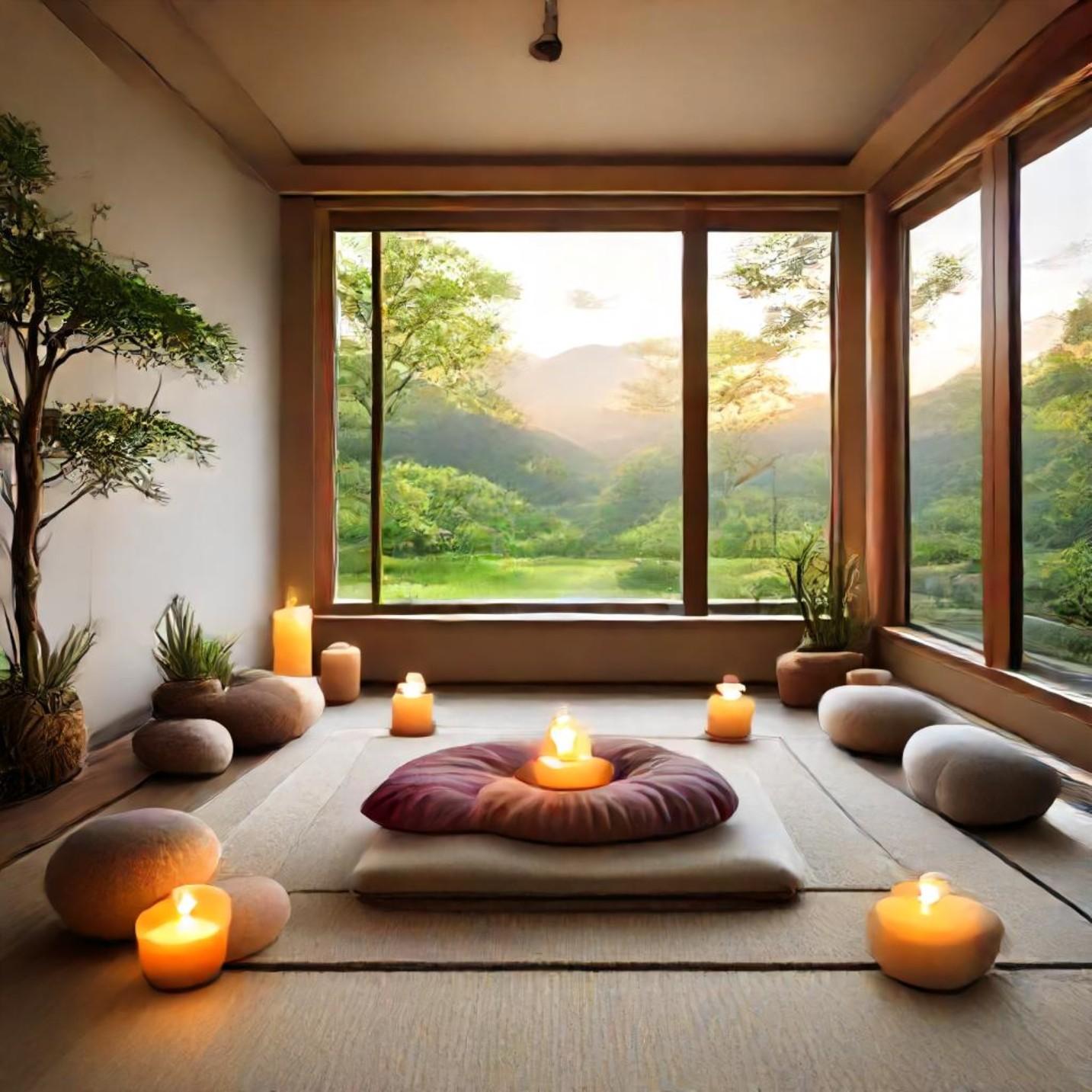
1. Clear the Space
Space clearing is the first and most important step in feng shui. It involves removing stagnant energy and inviting fresh, vibrant chi into the space. You can do this by:
- Opening all windows for at least 9 minutes to allow old energy to escape and new energy to enter
- Smudging the room with sage or palo santo to purify the air
- Ringing a bell or chime to dispel negative energy
- Diffusing uplifting essential oils like lemon, peppermint or eucalyptus
Smudging with sage is a powerful way to cleanse the energy of a space. Light a bundle of dried sage and gently blow out the flame, allowing the smoke to fill the room. Pay special attention to corners and doorways, as these are considered entry points for energy. As you smudge, visualize the smoke carrying away any negative or stagnant energy.
Ringing a bell or chime can also help shift the energy in a space. The high-frequency sound waves are believed to disrupt and dispel negative patterns. Walk around your living room, ringing the bell or chime in each corner and along the walls. Imagine the sound waves clearing away any dense or heavy energy.
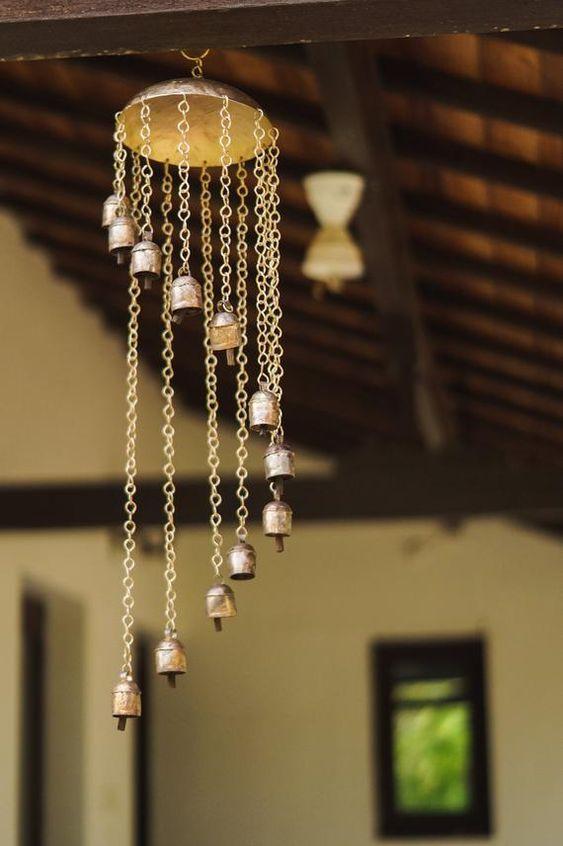 Feng Shui Bell, Pinterest
Feng Shui Bell, Pinterest
Essential oils are another effective tool for space clearing. Diffuse uplifting oils like lemon, peppermint or eucalyptus to invigorate the space with fresh, positive energy. You can also create a room spray by mixing a few drops of essential oil with water in a spray bottle. Mist the room, focusing on areas where energy tends to stagnate, such as corners and windowsills.
Also Read: Wind Chime Bells: A Harmonious Addition to Your Space
2. Declutter and Organise
Clutter is the enemy of good feng shui. It blocks the natural flow of energy and creates a sense of overwhelm. Go through your living room and remove any unnecessary items.
Organise remaining items neatly in drawers, shelves or storage ottomans. Remember, empty space is just as important as filled space in feng shui.
As you declutter, be mindful of what you choose to keep. Items that are broken, worn out or no longer serve you can weigh down the energy of a space. Donate, recycle or dispose of anything that no longer brings you joy or serves a purpose. Clearing clutter not only creates a more harmonious environment but also frees up mental and emotional space for new opportunities to enter your life.
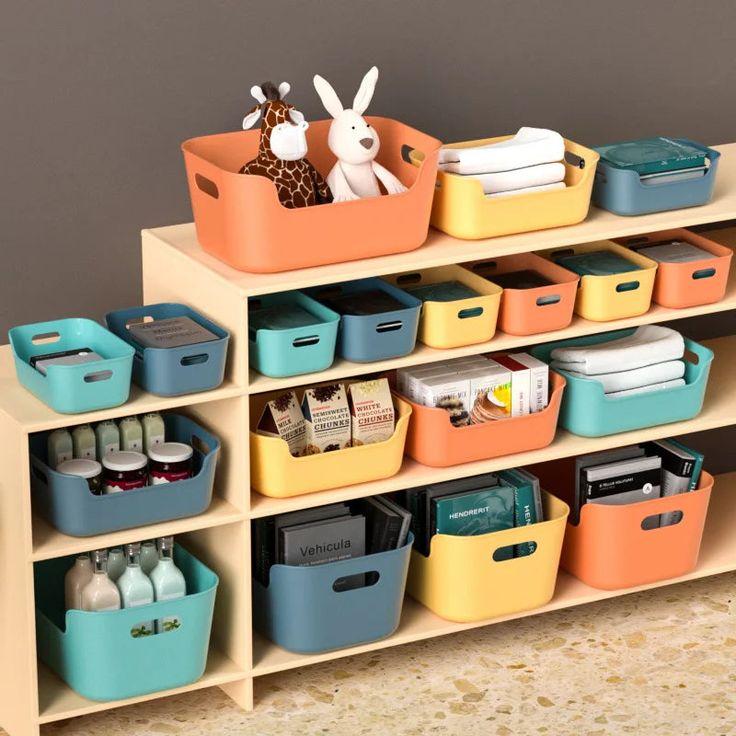
Also Read: 15 Must-Have Drawer Organisers for a Clutter-Free Home
3. Let in Natural Light
Sunlight is considered the best source of positive energy in feng shui. Open curtains and blinds during the day to allow natural light to flood the room. If your living room lacks windows, supplement with warm-toned artificial lighting to create a welcoming ambiance.
Placing mirrors strategically can also help amplify natural light. Position mirrors opposite windows or across from each other to reflect and bounce light around the room. This creates the illusion of more space and a brighter, more cheerful atmosphere.
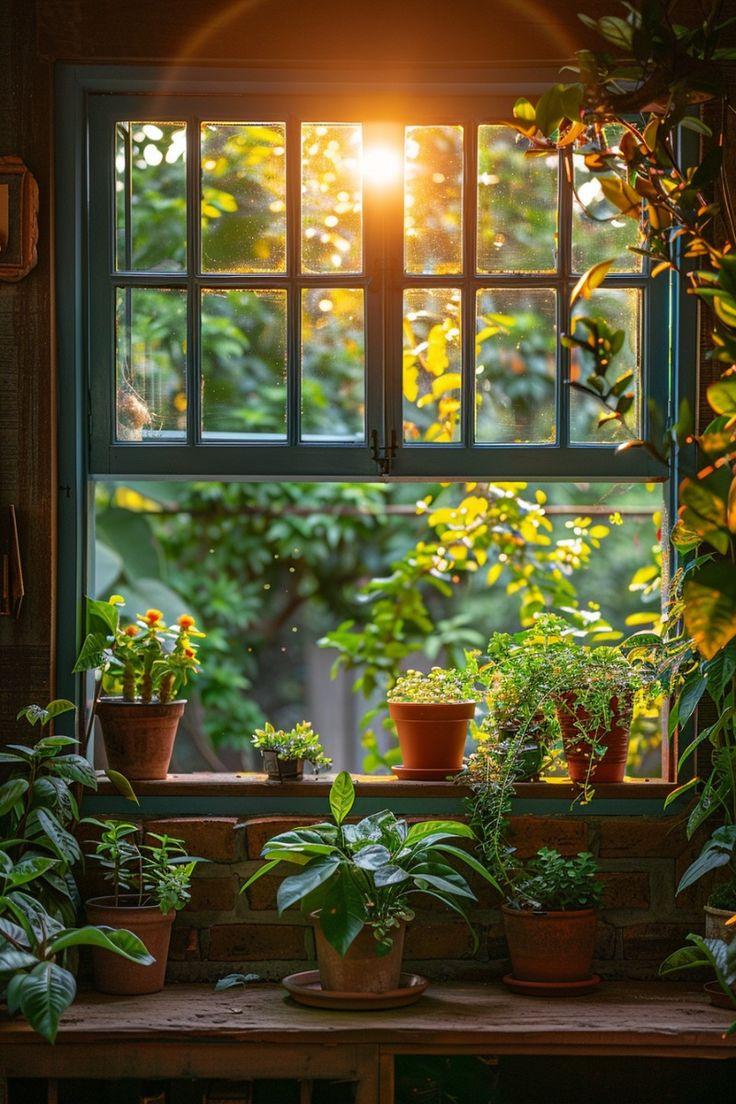 Pinterest
Pinterest
4. Arrange Furniture Wisely
The placement of furniture significantly impacts the flow of energy in a space. Arrange seating in a U-shaped or circular configuration to encourage conversation and connection. Avoid having furniture with sharp corners pointing directly at seating areas, as this is believed to create an unsettling "poison arrow" effect.
When arranging your furniture, consider the bagua map, a feng shui tool that divides a space into nine areas corresponding to different aspects of life. Place items that represent your goals and aspirations in the appropriate areas of the bagua. For example, place a plant or lamp in the wealth and prosperity area, or a photo of loved ones in the relationship area.
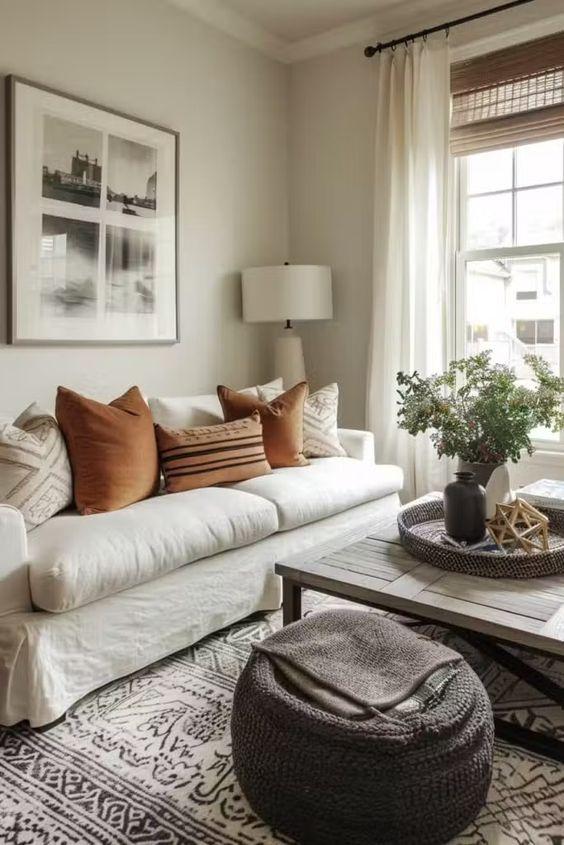 Pinterest
Pinterest
5. Incorporate the Five Elements
In feng shui, the five elements - wood, fire, earth, metal and water - are believed to make up all matter in the universe. Incorporating all five elements into your living room decor creates balance and harmony. You can do this by:
- Adding plants or wooden furniture to represent wood
- Placing candles, a fireplace or red accents for fire
- Using earthy colors like green, brown or beige
- Displaying metal decor like vases, sculptures or mirrors
- Incorporating water features like a tabletop fountain or aquarium
When choosing items to represent each element, consider their shape, color and material. For example, a round mirror or metal sculpture can represent the metal element, while a rectangular wooden coffee table represents wood. Experiment with different combinations and placements to find what feels most harmonious in your space.
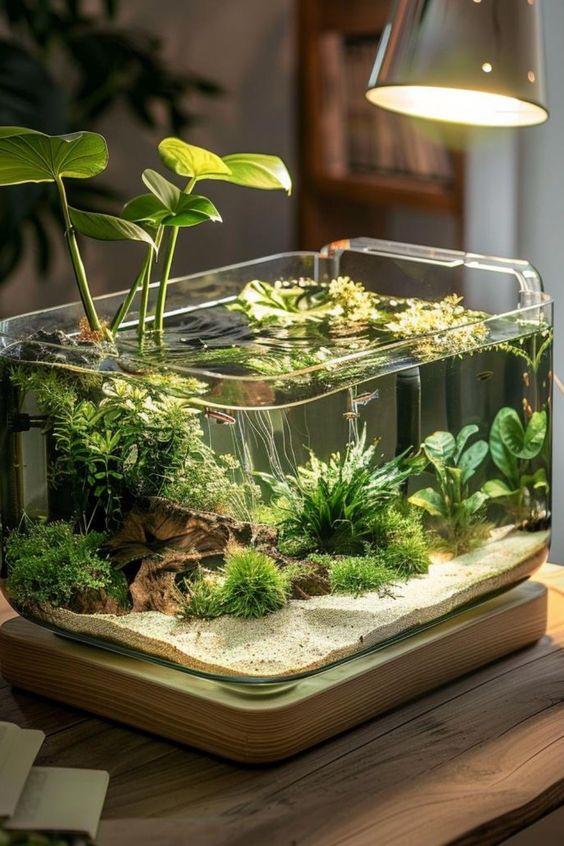 Aquarium for Feng Shui, Pinterest
Aquarium for Feng Shui, Pinterest
Also Read: 24 Lucky Indoor Plants As Per Feng Shui
6. Choose Harmonious Colors
Colors have a profound impact on our mood and energy levels. In feng shui, certain colors are believed to promote specific qualities. For example:
- Blue and green are calming and promote relaxation
- Red, orange and yellow are energizing and stimulating
- White, gray and metallic colors are purifying and clarifying
When selecting colors for your living room, aim for a harmonious palette of no more than five colors. Avoid overwhelming the space with too many bright, contrasting hues. If you're unsure where to start, consider using the color wheel to choose complementary or analogous colors that work well together.
Remember, the colors you choose should align with your personal preferences and the energy you want to cultivate in your living room. If you prefer a more soothing atmosphere, opt for cooler tones like blues and greens. If you want to create a lively, energetic space, incorporate warmer hues like reds and oranges.
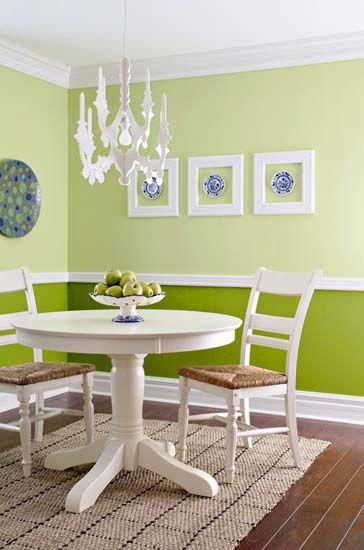
Also Read: Simple Wall Painting Designs to Elevate Your Home Decor
7. Hang Artwork Thoughtfully
Artwork is a powerful tool in feng shui. Choose pieces that evoke positive emotions and represent your goals and aspirations. Avoid hanging artwork depicting violence, conflict or negative emotions. Place artwork at eye level or slightly above to create a sense of balance. If you have a large wall, hang multiple pieces in a balanced arrangement.
When selecting artwork, consider the colors, shapes and themes that resonate with you. Opt for pieces that make you feel inspired, uplifted and motivated. Abstract art can be particularly powerful in feng shui, as it allows you to project your own interpretations and intentions onto the piece.
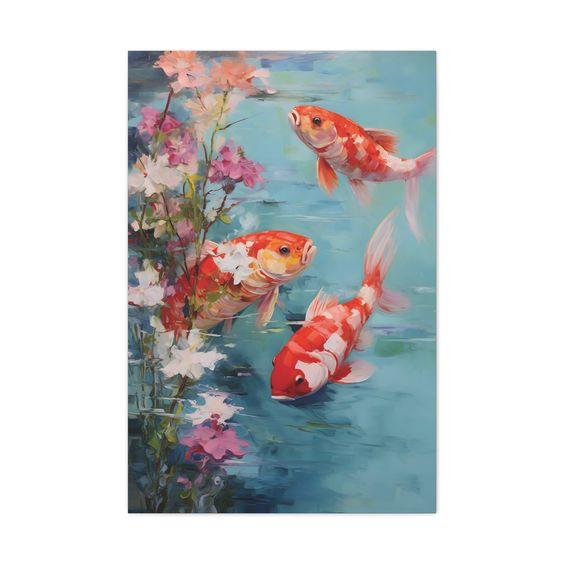 Feng Shui Artwork, Pinterest
Feng Shui Artwork, Pinterest
8. Use Mirrors Strategically
Mirrors are considered a powerful feng shui tool, as they are believed to enhance and reflect positive energy. However, their placement is crucial. Avoid hanging mirrors directly opposite the front door, as this can cause energy to bounce out of the room. Instead, place mirrors to reflect a window, artwork or a beautiful view. Mirrors can also be used to create the illusion of space in a small living room.
When choosing mirrors, look for frames that complement the style and colors of your living room decor. Avoid mirrors with sharp, angular frames, as they can create a harsh, unsettling energy. Opt for round or oval mirrors to soften the space and promote a more calming atmosphere.
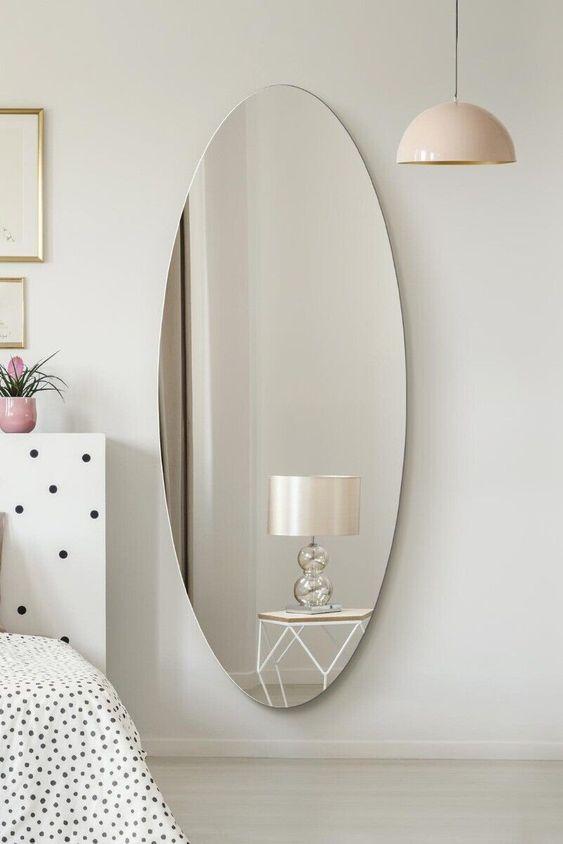 Pinterest
Pinterest
Also Read: What is a Feng Shui Bagua Mirror?
9. Add Personal Touches
Ultimately, feng shui is about creating a space that feels comfortable, nurturing and aligned with your personal goals and values. Incorporate meaningful objects, photos and mementos that bring you joy. Display items that represent your aspirations, such as a globe for travel, books for knowledge, or a piggy bank for wealth. Personalise your living room with items that make you feel at home.
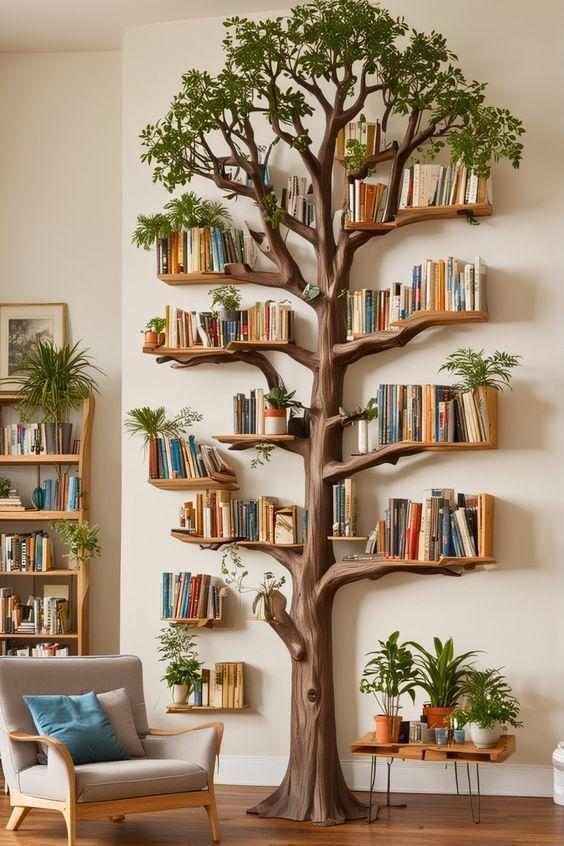
Also Read: Bookshelf Design Ideas: Creative Ways to Display Your Collection
Conclusion
Remember, feng shui is not about perfection but rather about creating a harmonious environment that supports your well-being. Experiment with these tips and trust your intuition to create a living room that resonates with you. Over time, as you continue to refine your space, you may notice positive shifts in your mood, relationships and overall life satisfaction.
explore further
Latest from Contemporary ideas
More from Innovations
Resources
Dwello, for every home buyer, is a way to go from 'I feel' to 'I know', at no extra cost.


